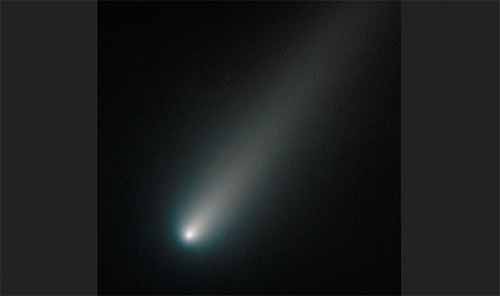
CANBERRA — The Universe is expanding faster than expected, possibly caused by an undiscovered force called dark radiation, the Australian National University (ANU) said on Friday.
Lead Australian researcher and ANU astrophysicist Brad Tucker said the precision study of star movements found the Universe is currently expanding between 5 percent and 9 percent faster than early in its life.
“A funny universe just got funnier,” said Tucker from the ANU Research School of Astronomy and Astrophysics.
“It could be a new force similar to dark energy, or a new particle, or it could be that dark energy itself has changed over time,” he said.
“We thought we were close to understanding dark energy, but now we know we don’t know the answer at all. There’s a lot of work to do.”
Cosmologists have realized in recent decades that normal matter such as stars, planets and gas constitutes only 5 percent of the Universe. The rest is 25 percent dark matter and 70 percent dark energy, both of which are invisible and have never been directly detected.
Precise values of the Universe’s expansion from 13.7 billion years ago have been calculated from observations of the cosmic microwave background, the very faint afterglow of the big bang.
The research was led by Nobel Laureate Adam Riess of the Space Telescope Science Institute and the Johns Hopkins University in the United States.
The research team used the Hubble Space telescope to look at variable stars, called Cepheids, and Type Ia supernovae, which both have well known brightness that enables their distance to be precisely determined.
Using the parallax shift between objects of different distances as the Hubble moved – around the Earth on a daily basis, around the Sun on a yearly basis, and from tiny vibrations onboard the satellite – the team measured the movements of about 2,400 Cepheid stars and about 300 Type Ia supernovae over two and a half years.
From these measurements they calculated the Universe’s expansion rate, known as the Hubble constant, to be 73.2 km per second per megaparsec (a megaparsec equals 3.26 million light-years) with an uncertainty of only 2.4 percent. The new value means the distance between cosmic objects will double in another 9.8 billion years.
The research is published in the Astrophysical Journal.
The team proposed a number of possible explanations for the universe’s excessive speed.
One possibility is that dark energy, already known to be accelerating the universe, may be shoving galaxies away from each other with growing strength, termed phantom dark energy.
Another idea is that the cosmos contained a new subatomic particle in its early history that traveled close to the speed of light and affected the expansion rate. Such speedy particles are collectively referred to as dark radiation and include previously known particles like neutrinos.
The boost in acceleration could also mean that dark matter possesses some weird, unexpected characteristics. Or the speedier universe may be telling astronomers that Einstein’s theory of gravity is incomplete.
Although unlikely to affect humanity’s near future, Tucker said the different scenarios could have serious repercussions for the Universe.
“If the acceleration is not too fast, the Universe will cool as it flies apart, resulting in a big freeze,” he said.
“But if the Universe can’t keep up with its own acceleration there will be a big rip. The Universe will literally rip itself apart, which would be awesome.” (Xinhua)
- Great Comeback: Watch US President Trump returns to the campaign trails in Florida with massive rally - October 12, 2020
- US President Trump back at the White House afterleaving Walter Reed Hospital due to Covid-19 - October 5, 2020
- Binge watch President Trump on the campaign trails - October 5, 2020















































